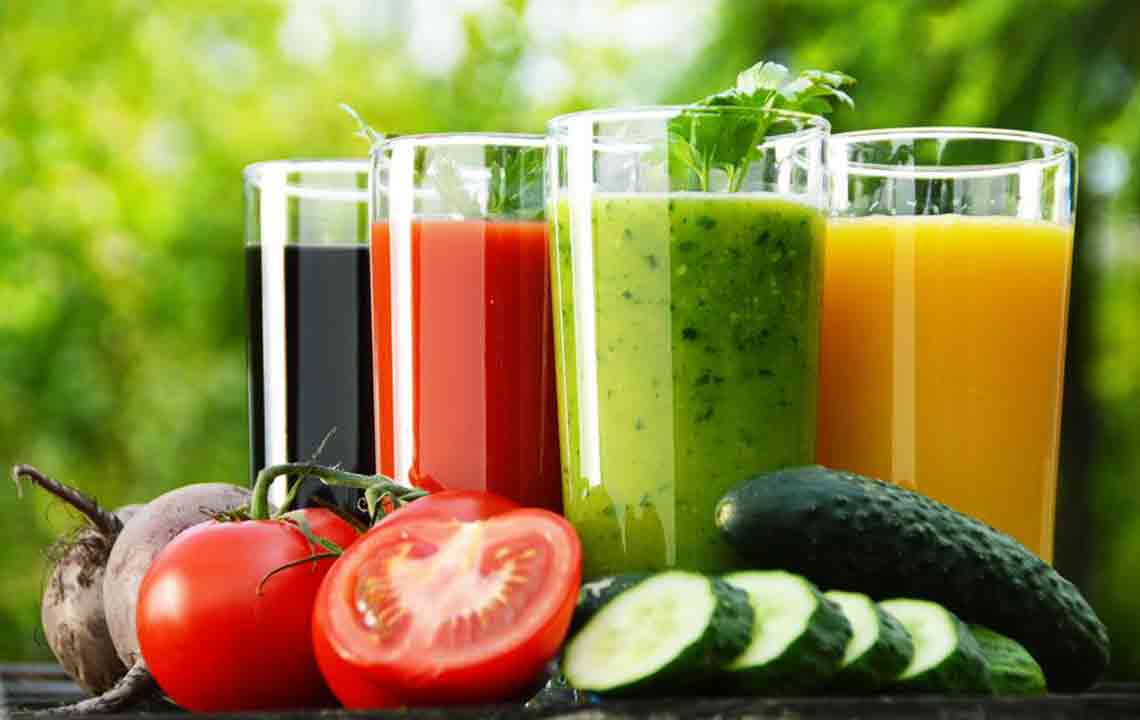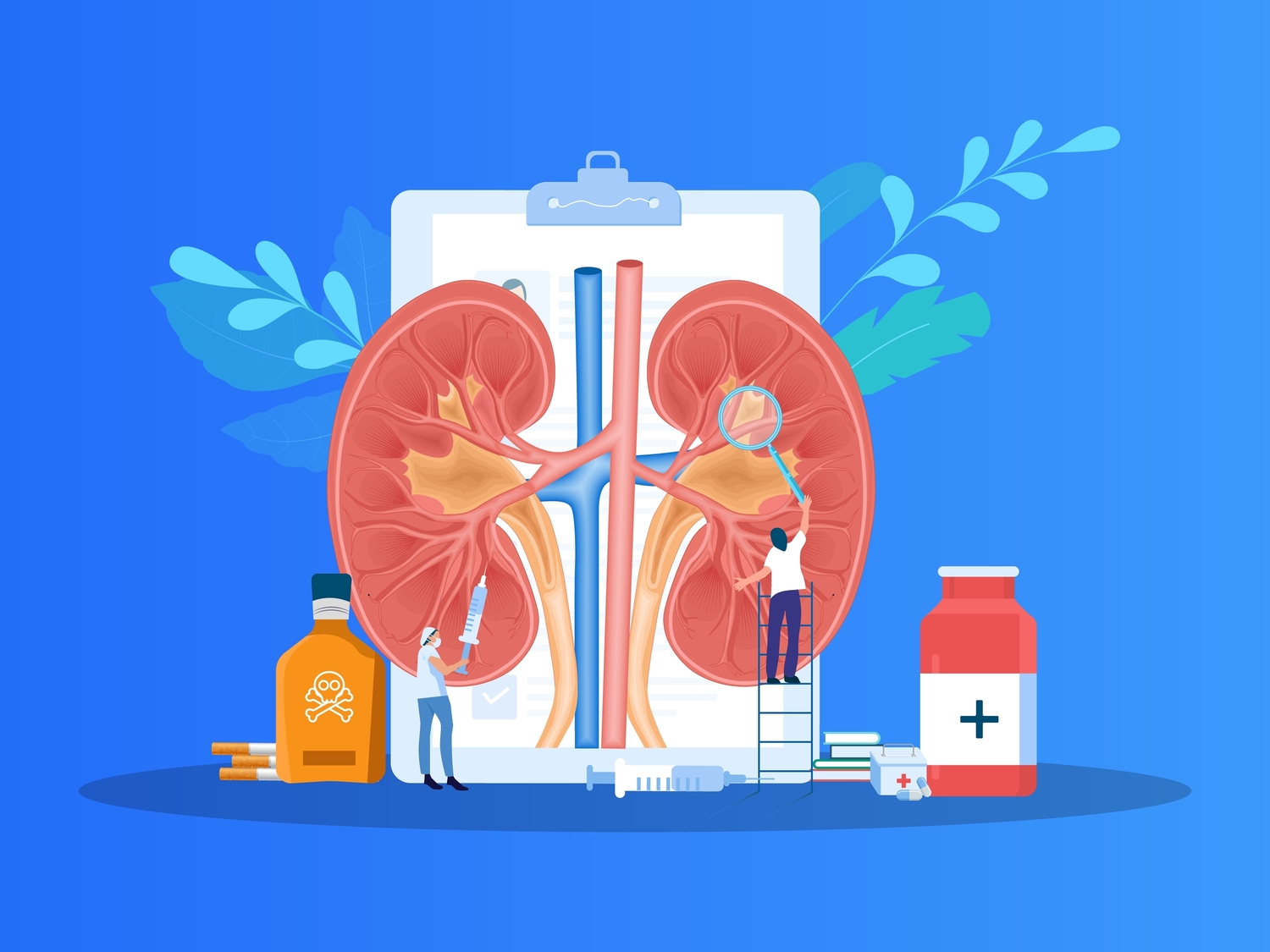Comprehensive Nutritional Approaches to Manage and Potentially Reverse Kidney Disease
This detailed guide explores essential dietary strategies for managing and potentially reversing kidney disease. It emphasizes the importance of selecting kidney-friendly vegetables and fruits, moderating protein intake, practicing healthy cooking methods, and controlling sodium and phosphorus consumption. By adopting these nutritional practices, individuals can slow disease progression, reduce complications, and improve overall kidney health. Collaborating with healthcare professionals ensures tailored dietary plans that support long-term wellness and kidney function preservation.

Key Dietary Strategies for Supporting Kidney Health
Are you exploring whether nutritional adjustments can assist in halting or reversing the progression of kidney disease? The evidence suggests that a carefully tailored diet plays a significant role in preserving or improving kidney function. Although there is currently no universal cure for kidney disease, dietary management is a vital component in controlling its advancement and mitigating associated health risks. Collaborating closely with healthcare providers and dietitians to develop a personalized nutrition plan can offer substantial benefits. Here, we delve into essential dietary guidelines that can bolster kidney health and support overall well-being:
Selecting Appropriate Vegetables for Kidney Health
One of the foundational aspects of a kidney-friendly diet is choosing vegetables wisely. Vegetables are rich in nutrients but some contain high levels of potassium, which can be problematic for individuals with kidney impairment. Limiting foods such as tomatoes, pumpkin, cooked spinach, and certain root vegetables helps prevent potassium overload. Instead, opt for low-potassium vegetables like cabbage, eggplant, cucumbers, bell peppers, yellow squash, and onions. These vegetables provide vital vitamins and minerals while reducing the risk of hyperkalemia. Incorporating these choices into your daily meals can significantly support your kidney health while ensuring balanced nutrition.
Incorporating Kidney-Friendly Fruits
Fruits are an essential component of a balanced diet, offering antioxidants, vitamins, and hydration. For those with kidney concerns, choosing fruits low in potassium is crucial. Opt for fruits such as cherries, apples, pineapples, watermelons, and berries like strawberries and blueberries. These fruits help provide necessary nutrients without overwhelming the kidneys. Conversely, high-potassium fruits such as oranges, kiwis, honeydews, and dried fruits should be consumed sparingly or avoided, depending on your health provider’s advice. Snacking on raspberries, blueberries, or sliced apples can add variety and flavor to your meals while supporting kidney health.
Moderating Protein Intake for Kidney Function
Protein is vital for maintaining muscle mass and overall health, but excessive protein intake can place undue stress on your kidneys. A low-protein diet, tailored to your individual needs, can help slow disease progression. Focus on moderate portions of lean meats, seafood, poultry, and eggs, and consider plant-based proteins where possible. If you are undergoing dialysis, your nutritional needs, including protein intake, may increase. Always consult your healthcare provider or dietitian to determine the appropriate amount for your condition, ensuring optimal kidney function while maintaining nutritional balance.
Adopting Healthy Cooking Techniques
How you prepare your meals greatly influences your kidney health. Using non-stick cookware minimizes the need for added fats and oils. Favor cooking methods such as baking, boiling, steaming, or grilling over frying to reduce unhealthy fat consumption and preserve nutrient content. Incorporating healthful fats like olive oil in cooking can support heart and kidney health. It’s also advisable to remove skin from poultry to reduce calorie and fat intake. Implementing these cooking strategies helps maintain a nutritious, kidney-friendly diet that can aid in managing the disease effectively.
Managing Sodium Intake
Sodium, primarily from salt, can lead to fluid retention, high blood pressure, and increased stress on the kidneys. To manage sodium intake, choose low-sodium or sodium-free products whenever possible. Limit processed foods such as chips, canned meats, hot dogs, and pre-packaged meals, which are typically high in salt. Preparing meals at home gives you better control over the salt content, allowing for seasoning with herbs and spices instead of salt. Keeping sodium levels within recommended limits can significantly reduce the risk of hypertension and further kidney damage.
Controlling Phosphorus Consumption
High phosphorus levels can weaken bones and cause cardiovascular issues, especially in individuals with kidney disease. Dairy products like milk, cheese, and creamy desserts are significant sources of phosphorus and should be consumed sparingly based on your healthcare provider’s advice. Instead, consider low-phosphorus options such as butter, non-dairy creamers, sherbet, and special non-dairy toppings. It’s essential to monitor calcium intake as well, particularly if you’re taking supplements, to maintain a balanced mineral profile. Reducing phosphorus intake through dietary choices is a key strategy in managing kidney health and preventing mineral imbalances.
Avoiding Fried and Fatty Foods
Fried foods are typically high in unhealthy fats and calories, which can exacerbate kidney damage and increase cardiovascular risk. Opt for healthier cooking methods like baking, steaming, grilling, and poaching, which preserve nutrients without adding excess fats. Replace fried options such as fried chicken, French fries, and fried fish with vegetables and fruits prepared through healthier techniques to support kidney health. By minimizing fried foods, you help reduce oxidative stress and inflammation, contributing to overall kidney function preservation.
Implementing these comprehensive dietary strategies requires commitment and awareness, but the benefits can be profound. Consistent, mindful choices in nutrition are vital for effectively managing and potentially reversing some aspects of kidney disease. Working closely with healthcare providers ensures that your diet aligns with your specific health needs, paving the way for better kidney health and improved quality of life.





